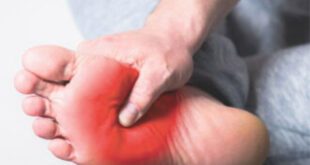By Patricia Spitzer, PA-C in collaboration with Dr. Thi Tran
Village Dermatology & Cosmetic Surgery, LLC
 Ever feel like your skin gets dry in the winter? Well, it’s a real thing and we refer to it in Dermatology as Asteatotic eczema or Eczema Craquele. The particular type of eczema typically occurs on the lower legs and has a cracked pavement type of appearance. The dryness associated with this causes a pretty significant itching. So what causes this? The dry, winter air strips the skin of its natural oils allowing it to become dry and flaky and thus itchy. The itching leads to scratching which has the potential to cause open sores and this can be a haven for bacteria. This particular condition in it’s severest form can lead to fissuring or cracking which can be quite painful.
Ever feel like your skin gets dry in the winter? Well, it’s a real thing and we refer to it in Dermatology as Asteatotic eczema or Eczema Craquele. The particular type of eczema typically occurs on the lower legs and has a cracked pavement type of appearance. The dryness associated with this causes a pretty significant itching. So what causes this? The dry, winter air strips the skin of its natural oils allowing it to become dry and flaky and thus itchy. The itching leads to scratching which has the potential to cause open sores and this can be a haven for bacteria. This particular condition in it’s severest form can lead to fissuring or cracking which can be quite painful.
So if this is related to eczema can I prevent or control it?
I get asked this question quite frequently and the answer is, yes. There are several methods of controlling dry, cracked skin. When you notice the skin has become dry and flaky it’s time to exfoliate. Exfoliating sheds the scaling and thus allows better penetration of moisturizers. How do I exfoliate? In Dermatology we typically recommend keratolytic medications or ones that remove the keratin (dead cell layer of the skin) such as lactic acid. When you do exfoliate remember to do so gently to not cause abrasions to the skin which can accentuate the problem.
Moisturize, moisturize, moisturize! It is the key to maintaining supple, smooth skin. It’s best to apply a gentle moisturizer to damp skin, just after a shower or bath. Ointment based products are more penetrating and tend to be more moisturizing than the creams or lotions. Typical recommendations for moisturizers that I give my patients are to use products like CeraVe, Cetaphil or Aveeno and avoid scented products to avoid risk of allergic reactions or irritation. Along with proper moisturizers it’s important to make sure to hydrate the skin by drinking plenty or water, the general recommendation being 6-8 glasses per day.
So what do I do if this occurs and I can’t control it myself? You come to Dermatology! We can treat with topical steroids to decrease the inflammation. If there are open, fissured areas there may be an additional treatment that includes an antibiotic to cover bacterial infections. We stray away from the use of oral steroids due to typical rebound symptoms after discontinuing usage.
General Recommendations:
• Use a gentle soap to avoid stropping the skin natural oils (liquid soap less harsh than bar soap)
• Avoid long, hot showers as these dry out the skin
• Pat-dry when toweling off, do not scrub
• Moisturizers that are ointment based are better
• Avoid sunburns by applying sunscreen even in the winter (remember snow is a better reflector than water)
• If the skin becomes red or crusted please see Dermatology
Villages Dermotlogy
352-751-6565 | www.villagederm.com
Check Also
Revolutionizing Neuropathy Treatment: The Summus Laser Approach at LaserLab
Neuropathy, a condition affecting an estimated 42.5 million Americans, can significantly impact one’s quality of …
 Central Florida Health and Wellness Magazine Health and Wellness Articles of the Villages
Central Florida Health and Wellness Magazine Health and Wellness Articles of the Villages



